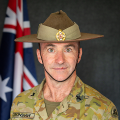Warning: This review contains material that may be distressing to some people.
Sexual violence as a war weapon is an abhorrent practice that has been practised (and hidden) for centuries. Rape, sexual slavery, forced prostitution, pregnancy, sterilisation, and family rape are all too often able to be committed with impunity. They are often a display of power and humiliation with a concrete plan aiming to demoralise and terrorise or even interrogate, and sometimes simply a reflection of poor discipline.
Part of the complexity is that it is perpetrated by men, but also women, and men and children as well as women are victims, with an horrific toll for stigma and reproductive health. It raises huge challenges for medical and psychological support (which it is important to be administered within 72 hours, which is often difficult to achieve).
These observations are part of the background literature review of Samantha Hope’s military ethics thesis that evaluated the effectiveness of the UK 2012 ‘Preventing Sexual Violence Initiative’. The thesis was awarded the International Society for Military Ethics in Europe (EuroISME) 2017 prize for the best student thesis, is available for download, and was published as Volume 5 of the EuroISME book series.
Hope’s question: ‘Is it possible to prevent sexual violence as a weapon of war against women, men and children or only to manage the after-effects?’ She assesses prevention strategies with Daesh as a cautionary case study – illustrating limitations of standard approaches and suggesting other measures. Daesh exercised widespread sexual violence to spread terror, persecute minorities, destroy women’s rights, generate revenue, punish boys who refused to fight, eliminate homosexuals, and attract new recruits.
Hope found sexual violence can be prevented with appropriate measures when they are adapted to the circumstances of a particular conflict: understanding, high-level support, training, and legislation. But it is not enough to have legislation if it is not implemented, and average costs for convictions in the International Criminal Tribunals for Rwanda are £39 million. Mandatory training can be useful but learning needs evaluation and grounding with complex scenarios.
Hope contends additional preventative measures are needed with more resources and long-term engagement. For example, it is strategic to learn from groups who have desisted from using sexual violence and to utilise the capabilities of civil society activists, faith groups, social media, and ‘citizen journalists’. It may also be fruitful to identify lessons from campaigns to stop land mines, child soldiering, and ‘blood diamonds’.
This is an important part of the UNSCR 1325 ‘Women and Peace and Security’ (WPS) agenda of the UN Security Council (2000) and its UNSCR 1820 resolution on sexual violence during wars (2008). Australia is seeking to play its part as detailed in ‘Gender, Peace and Security at Defence’ and the Second Australian National Action Plan (NAP) on Women, Peace and Security 2021-2031 for which ‘reducing sexual and gender-based violence’ is one of four outcomes. Notably, Australia is offering cutting edge leadership in this area through ADF Gender Advisors and Gender Focal Points.
For broader context, helpful online courses are:
- Campus: Women, Peace and Security.
- Campus: Gender Perspective in Military Operations (Air Force, with an Army version forthcoming).
- Australian Civil-Military Centre (ACMC) Women, Peace and Security.
- United Nations Training Program for Military Gender Advisors.
The key take-to-operations points for me are that sexual violence is not excusable and inevitable, and there are measures that can help avoiding and treating it. It is also critical to consider sexual violence as part of the broader WPS agenda and to recognise that the widespread practice of Intimate Partner Violence (IPV) also needs addressing in many cultures.
Hope’s analysis focused on Daesh during war in Iraq and Syria. Yet there are also lessons for engagement in the Indo-Pacific where gender and sexual violence are critical issues of justice and peace-making. 'Preventing Sexual Violence as a Weapon of War' is helpful reading for Gender Advisors and Gender Focal Points and all commanders interested in understanding and prevention.









